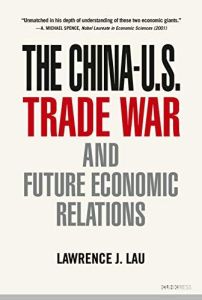Lawrence Lau, a longtime professor of economics, sees no winners in the US–China trade war. Yet his study of the tit-for-tat battle between Washington and Beijing isn’t a political screed. Instead, Lau serves up a clear-eyed analysis of the geopolitical underpinnings of the trade dispute. He even calculates how much a full-scale trade war would cost the Chinese economy – and he concludes it would be little more than a glancing blow. Economists, executives and China watchers will appreciate this straightforward analysis of a complicated issue.
China and the United States have a symbiotic relationship between unequal partners.
In some ways, the United States and China are fierce rivals. They rank first and second among the world’s largest economies, respectively, and China has flexed its muscle since the late 1970s with rapid and relentless growth. In other ways, however, China continues to trail far behind America. In 2017, China’s per capita GDP was just $9,137, not even cracking the top 70 in the world. The United States had a far higher GDP per capita of $59,518. China’s military is no match for America’s, its currency is an afterthought compared to the dollar and its position on the international stage lags that of the United States.
While China and the United States are important trading partners, tension marks their economic relationship. Americans gripe about the trade imbalance that favors China, China’s alleged manipulation of its currency and its less-than-welcoming embrace of American firms hoping to do business in China. Washington also takes issue with Beijing’s weak protections for intellectual property and a seeming free-for-all in terms of...

















Comment on this summary